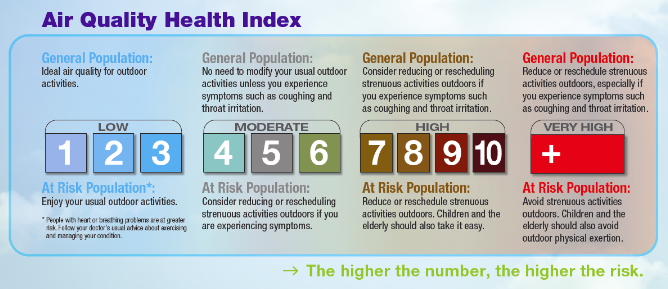WELLINGTON COUNTY – Public health officials say the air quality in the region is “high risk” and area residents should take precautions – at least for the next few days.
“The risk – especially for those who are vulnerable – can be quite serious,” stated Dr. Matthew Tenenbaum, associate medical officer of health, in a press release issued late in the day on June 8.
“I’m encouraging all members of the public to know the symptoms of smoke exposure and monitor themselves carefully.
“We can all make this situation better by checking in on those around us who are at greater risk due to poor air quality.”
The Wellington-Dufferin-Guelph Public Health (WDGPH) release notes the air quality health index for the region was forecasted to reach 7 (“high risk”) until late in the day on June 9, due to smoke smoke from wildfires in Quebec and northeastern Ontario.
“The smoke contains small particles which can enter our lungs and bloodstream and cause serious health complications,” the release states.
WDGPH officials say those at highest risk are small children, pregnant women, seniors, people with lung or heart conditions and people involved in strenuous outdoor work or sports.

Air quality health index from WDGPH.
Public health states people should “watch carefully for the following symptoms of smoke exposure”:
- sore and watery eyes;
- runny nose and sinus irritation;
- scratchy throat and mild coughing; and
- headache.
The following symptoms are less common, but are more serious, officials say:
- shortness of breath;
- wheezing (including asthma attacks);
- severe cough;
- dizziness;
- chest pains; and
- heart palpitations
WDGPH is “encouraging all residents to monitor for these symptoms and seek medical care when necessary.
“Stop or reduce your activity level if breathing is uncomfortable or you are feeling unwell.
“People respond differently to smoke, and it is important to be aware of how your body is feeling.”
As the air quality index changes throughout the day, residents are encouraged to spend time indoors while the risk is highest, and to keep windows and doors closed if the temperature is comfortable.
When not at home, residents can access indoor spaces such as libraries, community centres, or malls.
For more information, visit wdgpublichealth.ca.




